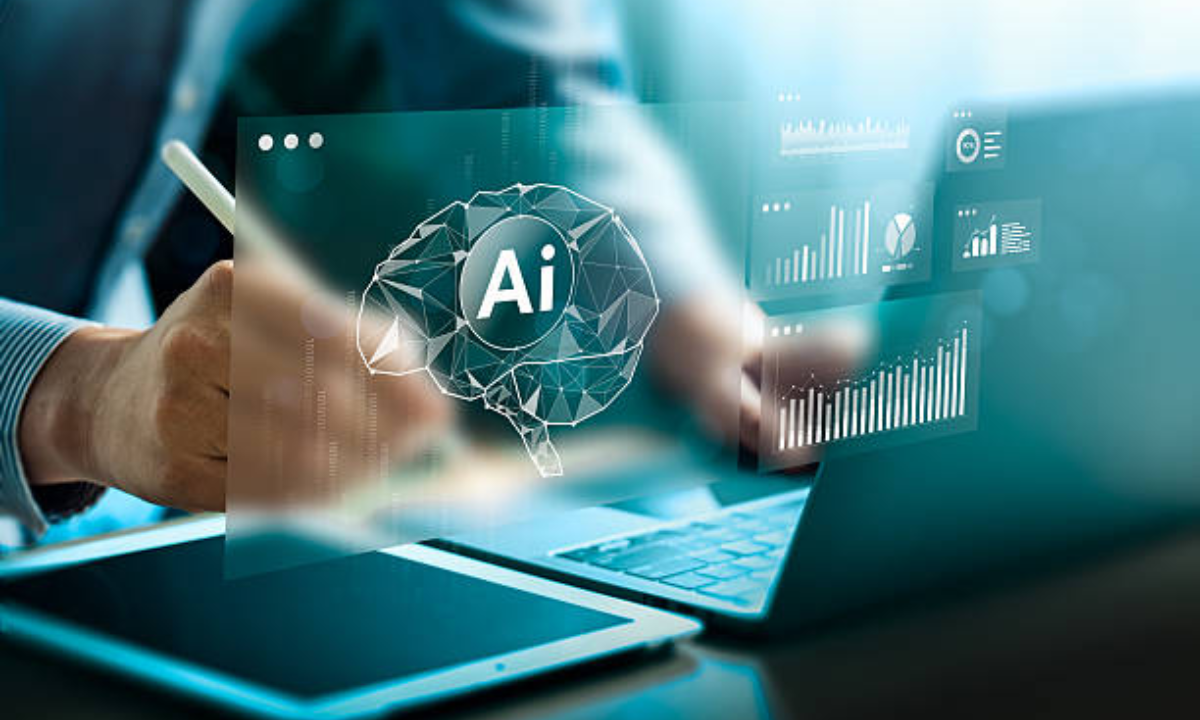Table of contents
|
1. Understanding What is Artificial Intelligence |
|
2. Why Choose a Career in Artificial Intelligence? |
|
3. Skills Required to Start in AI |
|
4. Educational Pathways |
|
5. The Role of Data Science with Artificial Intelligence |
|
6. Steps to Start Your AI Career
|
|
7. Job Opportunities for Artificial Intelligence in India |
|
8. Scope of Artificial Intelligence |
|
9. Common Challenges and How to Overcome Them |
|
10.Tips for a Successful Career in AI |
|
11. FAQs |
|
12. Conclusion |
A career in Artificial Intelligence (AI) is one of the most exciting and rewarding paths in today’s tech-driven world. As AI continues to revolutionize industries from healthcare and finance to transportation and education, the demand for skilled professionals is at an all-time high.
At Apponix, we have seen a significant rise in learners from across India choosing AI as their primary career goal. But many people still ask: How do I start? What skills do I need? What is the scope? This guide will answer those questions step by step.
1. Understanding What is Artificial Intelligence
Before you set out on your journey, it’s crucial to understand what artificial intelligence is.
In simple terms, AI is the simulation of human intelligence by machines—especially computer systems. It enables machines to perform tasks that usually require human intelligence, such as problem-solving, learning, perception, and decision-making.
Key Components of AI include:
-
Machine Learning (ML) – Systems learn from data to make predictions.
-
Natural Language Processing (NLP) – Machines understand and respond to human language.
-
Computer Vision – Systems interpret visual data like images and videos.
-
Robotics – AI-driven robots perform human-like or repetitive tasks.
2. Why Choose a Career in Artificial Intelligence?
The scope of artificial intelligence is massive. AI is no longer just a research topic—it is the backbone of modern technology and business innovation.
Some key reasons to choose AI as a career include:
-
High demand: AI professionals are among the most sought-after in IT.
-
Excellent pay: Competitive salaries with rapid growth potential.
-
Diverse career roles: From AI engineers and data scientists to AI researchers and product managers.
-
Global opportunities: AI skills are relevant worldwide.
3. Skills Required to Start in AI
Building a career in Artificial Intelligence requires a combination of technical and soft skills.
|
Skill Category |
Key Skills |
|
Technical Skills |
Python, R, SQL, Data Structures, Machine Learning, Deep Learning |
|
Mathematical Skills |
Linear Algebra, Probability, Statistics |
|
Domain Knowledge |
Industry-specific understanding (e.g., healthcare, finance) |
|
Soft Skills |
Problem-solving, Critical Thinking, Communication |
Tip: If you are already familiar with programming or data science with artificial intelligence, you have a head start.
4. Educational Pathways
While a degree in Computer Science, Data Science, or AI is helpful, many successful AI professionals come from non-traditional backgrounds. The most important thing is structured learning combined with hands-on practice.
Options to Learn AI:
-
University Degrees – B.Tech, M.Tech, MSc in AI, or related fields.
-
Professional Certifications – These are often faster and more industry-oriented.
-
Specialized Training Programs – Such as an Artificial Intelligence Course in Bangalore that combines theory, practical projects, and placement support.
5. The Role of Data Science with Artificial Intelligence
AI and data science are deeply connected. AI systems need data to learn, and data science techniques are used to clean, process, and interpret that data.
Example:
If an AI model is designed to predict stock prices, data science is used to analyze historical market data, while AI algorithms forecast future prices.
This is why many AI career paths require strong data science with artificial intelligence skills.
6. Steps to Start Your AI Career
Here’s a step-by-step approach for beginners:
Step 1: Learn the Basics
-
Understand what artificial intelligence, machine learning, and deep learning are.
-
Learn Python; most AI development is done in Python.
Step 2: Build Your Mathematical Foundation
-
Focus on statistics, linear algebra, and probability.
-
Learn how these concepts apply to AI algorithms.
Step 3: Choose an Area of Specialization
Some popular AI fields include:
-
Natural Language Processing (NLP)
-
Computer Vision
-
Robotics
-
AI in Business Intelligence
Step 4: Get Hands-On Experience
-
Build small AI projects (e.g., chatbot, image classifier).
-
Participate in AI hackathons and coding challenges.
Step 5: Enroll in a Professional Course
-
Consider joining an Artificial Intelligence Course in Bangalore for structured training, mentorship, and industry connections.
Step 6: Create a Strong Portfolio
-
Showcase your AI projects on GitHub.
-
Add certifications and internships to your LinkedIn profile.
Step 7: Apply for Entry-Level Roles
-
AI Intern
-
Data Analyst
-
Junior Machine Learning Engineer
7. Job Opportunities for Artificial Intelligence in India
India is emerging as a global AI hub with many job opportunities. The future of artificial intelligence in India is promising, with adoption across industries like finance, healthcare, e-commerce, manufacturing, and education.
Popular AI Roles in India include:
-
AI Engineer
-
Data Scientist
-
Machine Learning Engineer
-
AI Product Manager
-
AI Research Scientist
-
Business Intelligence Developer
Salary Snapshot (India, Entry-Level to Mid-Level):
|
Role |
Salary Range (per annum) |
|
AI Engineer |
₹6 LPA – ₹15 LPA |
|
Data Scientist |
₹5 LPA – ₹14 LPA |
|
Machine Learning Engineer |
₹6 LPA – ₹16 LPA |
|
AI Researcher |
₹8 LPA – ₹18 LPA |
8. Scope of Artificial Intelligence
The scope of artificial intelligence is expanding rapidly. According to recent industry reports:
-
By 2030, AI could contribute over $15 trillion to the global economy.
-
In India alone, AI could add $450–500 billion to GDP by 2025.
-
Sectors like agriculture, healthcare, and logistics are adopting AI to improve efficiency.
9. Common Challenges and How to Overcome Them
|
Challenge |
Solution |
|
Lack of programming skills |
Start with beginner-friendly Python courses |
|
An overwhelming number of AI tools |
Focus on one at a time, e.g., TensorFlow, PyTorch |
|
No practical experience |
Work on real-world datasets from Kaggle |
|
Fear of competition |
Build a unique skill set by specialising in a niche |
10. Tips for a Successful Career in AI
-
Keep Learning: AI is evolving fast; stay updated with the latest research.
-
Network Actively: Attend AI meetups, webinars, and conferences.
-
Work on Projects: Practical application is more important than theory alone.
-
Understand the Ethics of AI: As AI impacts society, ethical AI skills are highly valued.
11. FAQs
Q1: Is coding necessary for a career in artificial intelligence?
Yes. Most AI work involves coding, particularly in Python.
Q2: Can I transition to AI from a non-technical background?
Yes, with the right training and practice, many professionals from fields like mathematics, physics, and even business have entered AI.
Q3: Which industries are hiring AI professionals in India?
Finance, healthcare, IT, retail, manufacturing, and education.
Q4: Is AI a safe career choice for the future?
Absolutely. The future of artificial intelligence in India and worldwide is bright, with increasing job opportunities.
Conclusion
Starting a career in Artificial Intelligence is a journey that requires dedication, continuous learning, and hands-on experience. From understanding what is artificial intelligence to mastering data science with artificial intelligence skills, each step brings you closer to becoming a valued AI professional.
The scope of artificial intelligence in India is immense, with endless job opportunities for artificial intelligence in India across industries. If you’re ready to take the first step, structured training—such as the Artificial Intelligence Course in Bangalore offered by Apponix—can provide the guidance, mentorship, and industry exposure you need to succeed. AI is the future. And the best time to start your journey is now.





